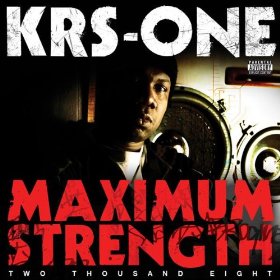“Everything Sad About Hip Hop” and other links…
 Hamilton Nolan: “Kool Herc was a guy from the South Bronx who founded something that became a worldwide phenomenon and left him behind. It’s made him bitter, naturally—although with a good consultant, he could probably make a healthy living on his role in hip hop history for the rest of his life.” Like my homeboy who started The Good Life, Kool Herc should not have to hire a “good consultant” to literally pay for the right to be rightfully recognized.
Hamilton Nolan: “Kool Herc was a guy from the South Bronx who founded something that became a worldwide phenomenon and left him behind. It’s made him bitter, naturally—although with a good consultant, he could probably make a healthy living on his role in hip hop history for the rest of his life.” Like my homeboy who started The Good Life, Kool Herc should not have to hire a “good consultant” to literally pay for the right to be rightfully recognized.
You see, the irony here is profound: the core of Hip Hop is about what is called “DJ culture”—this is all about researching the past to find the “fresh” record for brand new retro. DJ culture is research culture. This means that real research leads back to Kool Herc—this means that, in a functioning Black African world, the biggest problem Kool Herc should have is scheduling the many (paid) appearances he’s supposed to be attending. While, say, Kanye West is sitting in a flamboyantly gay Louis Vuitton hotel suite in France selling shoes, he should also have Kool Herc on speed dial—assuming a brother like Kool can stand that pop shit.
“D’Angelo: Brown Sugar Blues”
Michael A. Gonzales: “Personally, I have so many D’Angelo stories spinning in my head, I could write a bible. Still, most of those neo-soul tales had been repressed until I read the sorrowful story written about D. in the latest issue of Spin magazine. Penned by David Peisner, “Body & Soul” was one of those well-researched and stylistically fly features that reminded me of Mojo magazine’s early years while making me wish I had written it myself.” I’ve talked about this D’Angelo tragedy to people—mostly women, of course—and few see how they can be sympathetic.
When D’Angelo took his clothes off, he threw his music out of the window. I downloaded a bootleg recording of “Africa” with him just playing the piano and singing. D’Angelo is not pop bullshitting—he is deeply in love with his music. And I’m sure he feels he lost communicating all of that when he got talked into cutting himself up to be beefcake. Most people do not have to worry about what is totally horrible about being “famous”: the world can “know” you for being a character that is not really you—this can be an open-air prison of psychological torture. “Africa is my descent. Here I’m far from home…”
“Robert Christgau, The Dean of Rock Criticism”
Fred McDarrah: “The first time I read Robert Christgau’s review, ‘Trying to Understand the Eagles,’ I was 13 years-old, sitting on my great-grandaunt’s living room couch in Minneapolis. Originally published in Newsday in 1972 and reprinted in his first book, 1973’s Any Old Way You Choose It, the piece is essentially the reason I became a rock critic.” This history reignites my interest in learning about a relatively literary period in pop culture when stars like David Bowie seemed to be writing songs for the critics instead of for the music business. I’m pretty sure Bob Dylan literary lyrics and the writers for Jazz icons (like Stanley Crouch) are in this history as well.
